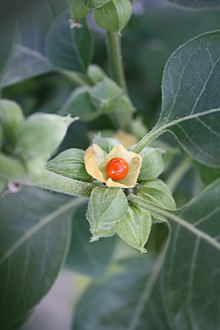Supplements for the Treatment of Schizophrenia
At the 2018 meeting of the North Carolina Psychiatric Association, researcher Karen Graham reviewed evidence for adjunctive treatments that may help treat schizophrenia when added to antipsychotic medications.
Graham endorsed omega-3-fatty acids, saying that they may delay the conversion to schizophrenia in young people at high risk for the illness. Data in chronic schizophrenia are more equivocal.
Data on the effects of vitamin D3 in schizophrenia are mixed, but D3 is often low in patients with psychotic disorders, and supplementation with vitamin D3 in the general population has been associated with decreases in cancer and all-cause mortality.
Graham indicated that in three studies vitamin B6 (pyridoxine) decreased tardive dyskinesia, a side effect of antipsychotic medication that is characterized by repetitive or jerky involuntary movements of the face and body. B6 also reduced the severity of akathisia or restless legs, which is comparable to the effects of 40mg/day of the beta blocker drug propranolol. Graham recommended a dose of 300mg/day of B6 that could be increased up to 600mg twice per day. The onset of effects usually begins by week three, and the cost ranges from 25 to 80 cents per day.
The antioxidant supplement N-acetylcysteine (NAC) may also help. Graham described six studies that found NAC had positive effects on negative symptoms (apathy, blunted emotions, etc.) and/or cognition in patients with schizophrenia. The dosage in these studies was usually 2 grams/day for 24 weeks. The cost was 50 cents per day.
Two 8-week trials of L-theanine (an amino acid found in green and black tea) at doses of 400mg/day improved negative symptoms and anxiety in 40 patients with schizophrenia. The rationale for the study was that L-theanine increases inhibitory neurotransmitters, modulates the amino acid 5-HTP and the neurotransmitter dopamine, increases brain-derived neurotrophic factor (BDNF), and may be neuroprotective after a heart attack or a traumatic brain injury. The cost is 40 cents per day.
Graham reported that the supplement ginkgo biloba produced significant improvement in negative symptoms and total symptoms in eight clinical trials that included a total of 1,033 patients with schizophrenia. Doses ranged from 240 to 360 mg/day. These supplements (usually extracted from leaves of the ginkgo tree) have not been found to have many side effects, but they can reportedly increase post-operative bleeding. Gingko biloba supplements cost 20 to 80 cents per day. There is also at least one positive study of ginkgo biloba in tardive dyskinesia.
Three of four studies of cannabidiol in schizophrenia have been positive (at doses of 600, 800, and 1,000 mg/day in studies that lasted four to six weeks). There are now six additional ongoing studies listed on the website clinicaltrials.gov. There is little of this diol component in regular marijuana, and the cost of pure cannabidiol is unfortunately an exorbitant $60 to $100/day.
There is a positive controlled study of the herb ashwagandha in 66 patients with schizophrenia.
Not included in Dr. Graham’s review was the prenatal treatment of women with phosphatidylcholine (900mg/day) followed by supplements in the newborn, which normalized an aspect of sensory gating known as P50 in patients with schizophrenia. Healthy individuals show a reduced response to an auditory cue when it is repeated 50 milliseconds after the initial cue. In people with schizophrenia, response to the repeated cue is not suppressed. This has been suggested by researchers Robert Freedman and Randal G. Ross in a 2015 article in the Shanghai Archives of Psychiatry as a possible primary preventive approach to schizophrenia.
Pregnant women in their second and third trimesters should at least consume foods high in choline, especially if the fetus is at high risk for schizophrenia because of a family history of schizophrenia.
Beef liver is very high in choline, providing 420mg per slice. Other animal products provide significant choline, such as eggs (120 mg/egg), beef (90mg/100g), chicken liver (85mg/liver), fish (85mg/100g), bacon (35mg/strip) or other pork, chicken (67mg/100g). Tofu (36mg/half cup) and cereal (22mg/half cup) are also sources of choline.
Foods High in Choline
| Beef liver | 1 slice | 420mg choline; |
| Egg | 1 egg | 120; |
| Beef | 100 gm | 90; |
| Chicken liver | 1 liver | 85; |
| Fish | 100 gm | 85; |
| Bacon or pork | 2 strips bacon | 70; |
| Chicken | 100 gm | 67; |
| Tofu | 120 ml (0.5 cup) | 36; |
| Cereal | 120 ml (0.5 cup) | 22 |
Withania Somnifera Herb Normalizes Sensory Processing Measure in Schizophrenia
 One of the best biomarkers of schizophrenia is low auditory mismatch negativity. Auditory mismatch negativity describes the pattern of electrical activity that occurs in the brain when a repeated sound is interrupted by a mismatched sound, such as a change in pitch or volume.
One of the best biomarkers of schizophrenia is low auditory mismatch negativity. Auditory mismatch negativity describes the pattern of electrical activity that occurs in the brain when a repeated sound is interrupted by a mismatched sound, such as a change in pitch or volume.
At the International Congress on Schizophrenia Research, Paulina S. Marell and colleagues described their pilot study of the antioxidant and anti-inflammatory herb Ashwagandha or Withania Somnifera (also known as Indian ginseng, poison gooseberry, or winter cherry). In 11 patients with schizophrenia, the herb normalized mismatch negativity compared to placebo.
Marell and colleagues wrote that the herb “recover[ed] some of the impaired early sensory/cognitive potentials in schizophrenia.” Since normal cognition relies on sensory processing, normalizing these functions in people with schizophrenia could improve their symptoms.
A 2018 study by researcher K.N. Roy Chengappa and colleagues in the Journal of Clinical Psychiatry reports that adding Withania Somnifera to patients’ regular antipsychotic medication improved negative symptoms of schizophrenia and total symptoms compared to adding placebo.
Editor’s Note: These studies, taken together, suggest the utility of adding this supplement to the treatment regimen for schizophrenia.
Medicinal Herb May Help Cognitive Dysfunction in Bipolar Disorder
Many patients with bipolar disorder experience cognitive deficits that impede their recovery and that persist during times of wellness. In a double-blind placebo-controlled study by K. N. Roy Chengappa et al. published in the Journal of Clinical Psychiatry in 2013, the herb Withania somnifera (WSE, commonly called ashwagandha and sold under the name Sensoril) was significantly better than placebo at improving patients’ performance on three different cognitive tasks.
In the eight-week study, 53 patients took either 500 mg of WSE or placebo in addition to their regular medications.
The herb, which has traditionally been used in Ayurvedic medicine in India as an aid to resisting stress and disease, improved performance on digit span backwards (a test of short-term memory in which the subject must repeat a sequence of numbers backwards), Flanker neutral (a test of response time in which a subject must repress their instinct to give an incorrect response), and the Penn Emotional Acuity Test (which requires subjects to correctly identify facial emotions depicted in photographs).
Mood and anxiety levels were not different for the group taking WSE and the group taking placebo.
The researchers hope to continue their investigation of WSE with larger and longer-term studies that will explore the effects of different doses of WSE.



